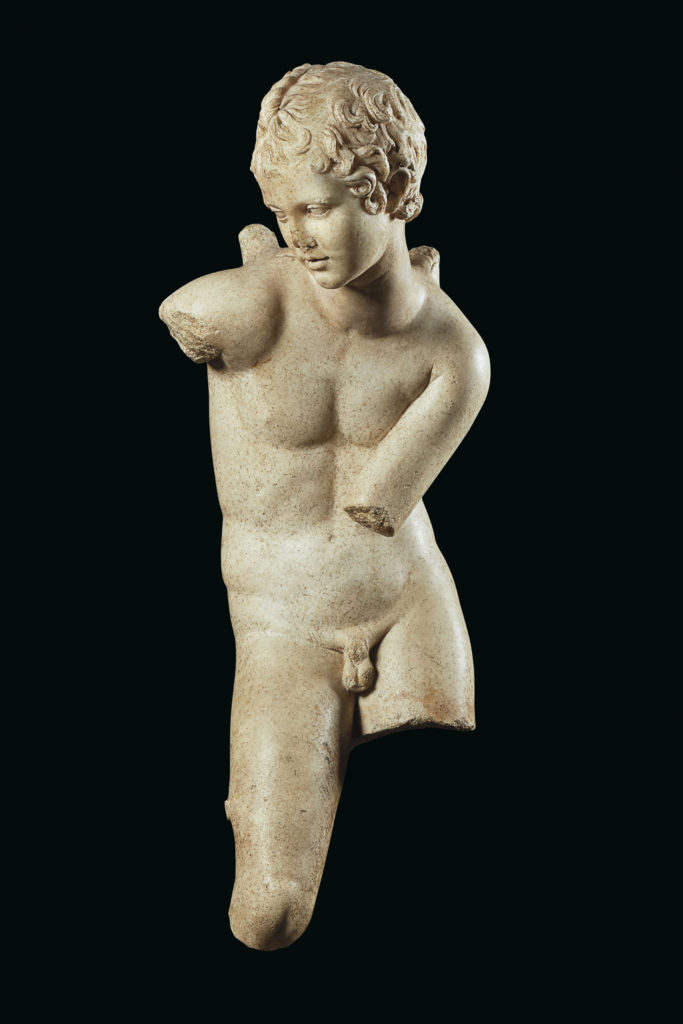Auctions
Christie’s Stands by Its Decision to Sell a $1 Million Roman Sculpture Despite Its Links to a Disgraced Dealer
An expert claims the statue of Eros can be linked to the notorious antiquities dealer Robin Symes.

An expert claims the statue of Eros can be linked to the notorious antiquities dealer Robin Symes.

Caroline Elbaor

Christie’s has defended the planned sale of a Roman marble statue due to hit the block next week in London after an expert claimed it could have passed through the hands of the disgraced antiquities dealer Robin Symes.
The first-century marble sculpture of the god Eros unstringing his bow, which is a cover lot of the sale on December 4, has an upper estimate of £800,000 ($1 million). The archaeologist Christos Tsirogiannis, who has spotted many Symes-tainted artifacts in the past, has accused the auction house of neglecting to conduct thorough research, which he says would link it to the dealer. The scholar says the connection is corroborated by at least four photographs showing Symes with the statue.
Symes fell from grace after the death of his long-term partner and business associate, Christo Michaelides, in 1999. In a legal battle with Michaelides’s family, Symes’s vast stock of antiquities, many with shady provenance, was discovered in various storage facilities. Greek and Italian officials also uncovered an archive documenting illegally acquired antiquities. In 2016, a trove of stolen objects belonging to Symes was recovered at the Geneva Freeport in Switzerland by Swiss and Italian police.
Tsirogiannis, who is an associate professor at Denmark’s Institute of Advanced Studies at the University of Aarhus, is an expert in the trade of illicit antiquities (and a veritable thorn in the side of auction houses). He is one of the few who has access to the Symes archive, which he was granted by Greek and Italian authorities for his research. Tsirogiannis has collaborated extensively with Interpol in the repatriation of artifacts to their source countries.
“Here we have the much-advertised due diligence process of Christie’s that has largely failed since it missed the most important part—the connection to Symes and Michaelides, notorious antiquities dealers connected with numerous cases of illicit antiquities,” Tsirogiannis told The Guardian.
Christie’s insists that the provenance of the statue of Eros is sound. In a statement, the auction house said: “This marble is known to have been in the collection of French writer, Roger Peyrefitte (1907–2000), Paris, France, since the later 1960s. [It was] acquired from Peyrefitte by the present owner in 1986.” The sculpture is listed as coming from “the property of a gentleman.”
Christie’s stressed that it devotes “considerable time and money to investigating the objects in our care.” It also called for greater cooperation between academics and those who have access to archives to collaborate on research.